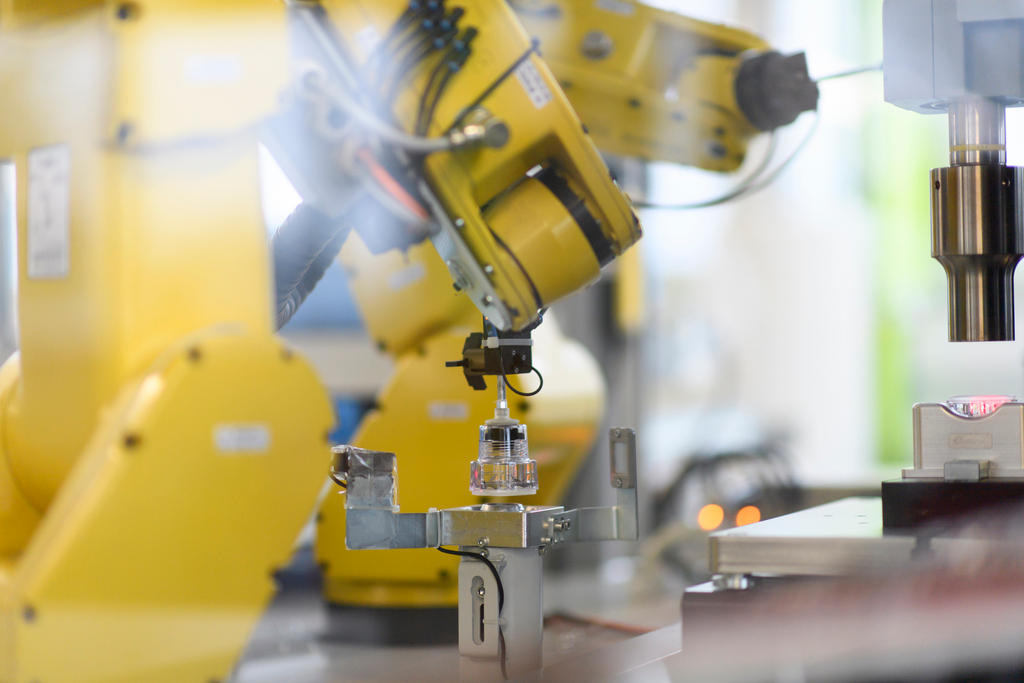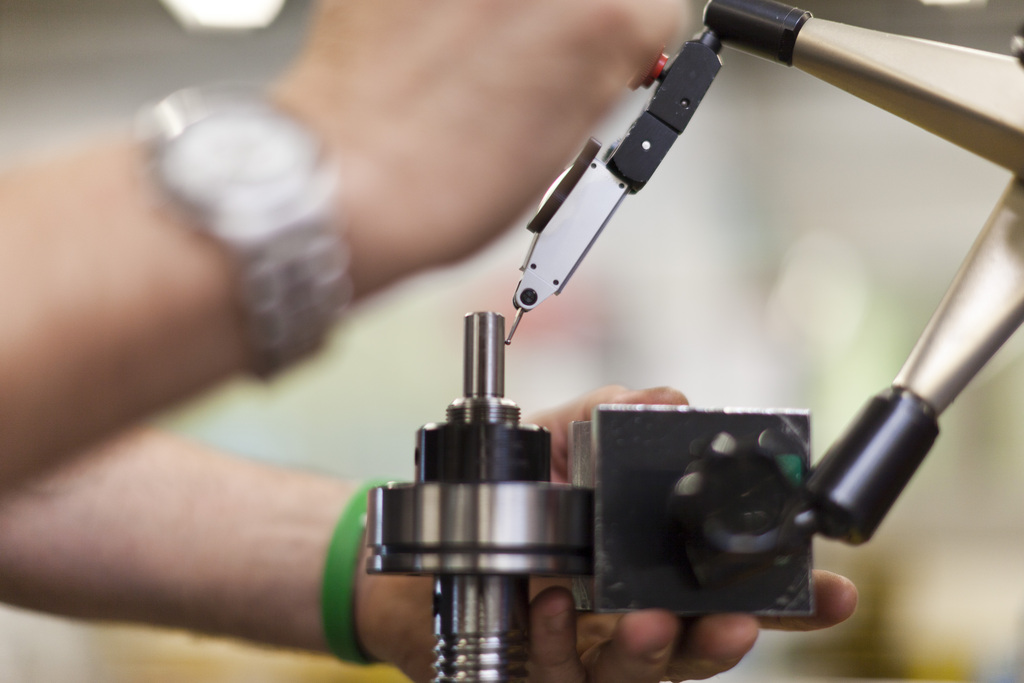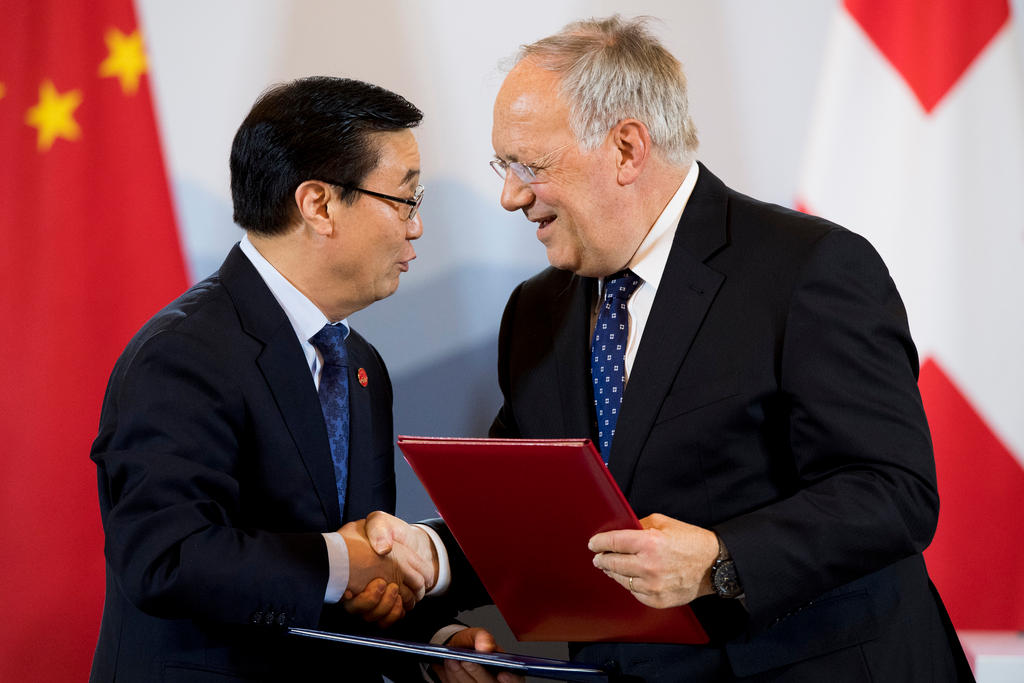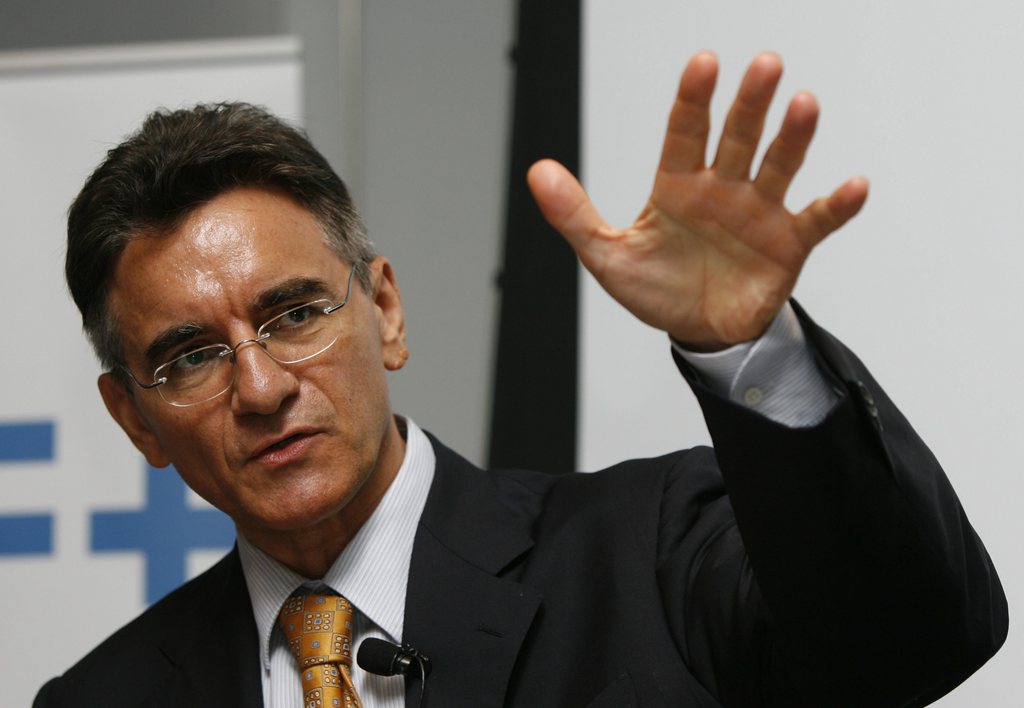Strong franc scares off investment in Switzerland

The strong franc continues to scare off foreign investors to Switzerland, while at the same time driving Swiss manufacturing abroad. These are the findings of the latest annual Ernst & Young foreign direct investment (FDI) survey released on Friday.
FDI is the amount of money invested by firms overseas, in the shape of factories, offices, workers and business projects. The strong franc makes it more expensive for companies from just about anywhere in the world to set up or expand operations in Switzerland. The buoyant currency also drives up the price of exports that are manufactured in Switzerland, reducing the competitiveness of domestic companies.
The EY studyExternal link reveals that investments are leaking out of Switzerland and into the Eurozone, where FDI is booming like never before. Last year, the number of foreign-financed projects initiated in Europe went up 16% to 5,873. In Switzerland that number dropped from 90 in 2015 to 88 last year.
The number of jobs these projects created in Switzerland more than doubled from 1,400 to 3,400. But EY Switzerland believes this is more down to the chance factor of some of these projects being larger than normal. The number of jobs generated in Switzerland is still below levels seen in 2007 and 2008, the consultancy firm noted.
While foreign firms apparently find Switzerland too expensive, Swiss companies are looking to make greater savings with their foreign investments. Last year Swiss firms created 289 investment projects in Europe – a quarter more than 2015 and more than double the number of 2009. A quarter of these projects were to outsource manufacturing from Switzerland to cheaper countries – notably Poland.
“The strong franc is the key driver here,” EY Switzerland tax partner Philip Robinson said in a statement. “But most Swiss companies – and not just family-owned ones – are not making full use of the business opportunities. Their continued attachment to their Swiss location often predominates.”
Business unfriendly referendums
These Swiss investments created a record 7,100 jobs in Europe last year – a rise of 37% since 2015. EY Switzerland calculates that Swiss firms have employed 100,000 workers in Europe in the last 20 years – more than half of them (56%) in the previous decade.
Focusing on Germany, Switzerland’s largest single trading partner, highlights the disparity in even starker terms. Since 2001, Swiss firms have created 18,500 new jobs in Germany. The reverse figure is just 5,000 jobs in Switzerland deriving from German investment.
In addition to the strong franc, Philip Robinson is also concerned by a number of recent referendum results that have not gone down well in business circles. This trend culminated in the public rejection of proposed Swiss corporate tax reforms earlier this year.
“Switzerland as a business location has lost appeal since the pre-crisis period,” noted Robinson, which shows that public support for “Switzerland as a business location, which has existed for decades, can no longer be taken for granted.”
According to EY Switzerland, the biggest hope for Switzerland lies in a revival of the EU economy. Swiss firms are urged to help themselves weather the storm by speeding up the automation of domestic production facilities: in other words, by replacing workers with cheaper robots and algorithms.

In compliance with the JTI standards
More: SWI swissinfo.ch certified by the Journalism Trust Initiative



You can find an overview of ongoing debates with our journalists here. Please join us!
If you want to start a conversation about a topic raised in this article or want to report factual errors, email us at english@swissinfo.ch.